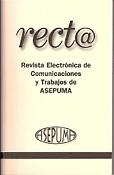Bayesian networks to predict financial distress in Spanish Banking
DOI:
https://doi.org/10.24310/recta.20.2.2019.19900Palabras clave:
Financial Distress, Bayesian model, Banking industry, Prediction, CAMELS, SpainResumen
This paper develops a short-term predictive model of financial distress in Spanish banking system with Bayesian networks. As bank failures have been scarce, this document has also considered other financial problems, encompassed under the term financial distress, such as non-compliance with its obligations, the need for intervention by external agencies, state aid, mergers and acquisitions with problems, and liquidations. The variables used to predict financial distress in the Spanish banking system have been financial variables, classified according to the CAMELS rating system, and economic variables, whose impact on the health of these entities has been demonstrated by several previous studies. With a sample of 148 banking institutions, the high success rate obtained shows that the Bayesian networks constitute a promising methodology for predicting short-term financial distress in the Spanish banking sector.
Descargas
Publicación Facts
Perfil de revisores N/D
Información adicional autores
Indexado: {$indexList}
-
Indexado en
- Sociedad Académica/Grupo
- N/D
- Editora:
- UMA Editorial. Universidad de Málaga
Descargas
Publicado
Cómo citar
Número
Sección
Licencia

Esta obra está bajo una licencia internacional Creative Commons Atribución-NoComercial 4.0.









